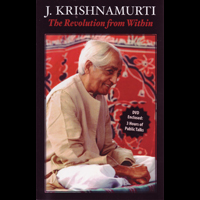Krishnamurti
Jiddu Krishnamurti (1895-1986) was a renowned spiritual teacher whose talks and writings have inspired millions of people throughout the world. Krishnamurti devoted his life to speaking and counseling, pointing the way for each person to find truth him/herself, independent of traditional spiritual authority. His fundamental teaching is that “truth is a pathless land.”
Think
on These Things
Harper & Row (1964)
Based on talks to students, teachers and parents in India, the book examines education, religion, culture and traditional values from a perspective that challenges our beliefs and unexamined assumptions.
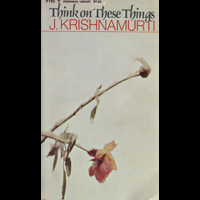
Commentaries
on Living (Volumes 1-3)
Quest Books (1967)
In this three-volume series of commentaries and discussions, Krishnamurti touches upon fundamental human problems such as love, death, relationships, fear, desire and happiness. Highly recommended.
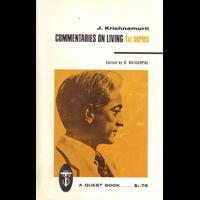
Freedom
from the Known
Harper & Row (1969)
This important volume synthesizes Krishnamurti’s thought on the human condition. He asserts that we change ourselves instantaneously through direct insight into how our minds work, thereby transforming the whole structure of society and our relationships.
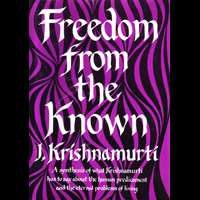
The
Urgency of Change
Victor Gollancz (1971)
Krishnamurti delves into the psychological problems of living peacefully and harmoniously in a complex world in this series of personal dialogues with seekers throughout the world.
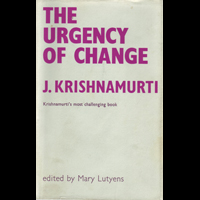
You Are the
World
Harper & Row (1972)
In this collection of talks and discussions at American universities, Krishnamurti directs each person to become one's own teacher and one's own disciple. “In oneself lies the whole world, and if you know how to look and learn, then the door is there and the key is in your hand.”
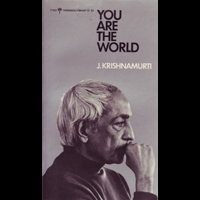
The Awakening
of Intelligence
Harper & Row (1973)
The volume is a comprehensive record of Krishnamurti’s essential teaching. It consists of talks, discussions and private conversations conducted throughout the world in which he touches upon fundamental human concerns such as pleasure and pain, conflict and peace, self-knowledge and intelligence.
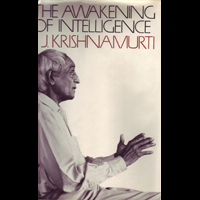
Krishnamurti’s
Notebook
Harper & Row (1976)
This unique book is a daily journal of Krishnamurti’s perceptions, observations and states of consciousness recorded over a seven month period in the 1960s. It provides an intimate insight into Krishnamurti’s mind as well as expressing the well-spring of his teaching.
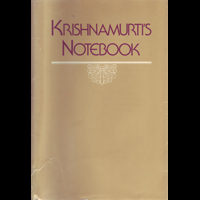
The Wholeness
of Life
Harper & Row (1979)
The first part of the book presents a series of lively discussions with physicist David Bohm and psychiatrist David Shainburg. The second part consists of public talks and private conversations held in America and Europe.
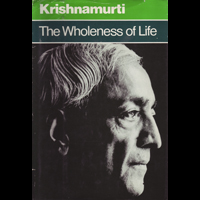
The Ending
of Time
Harper & Row (1985)
In this series of penetrating dialogues, Krishnamurti and theoretical physicist David Bohm probe some of the fundamental questions concerning the nature of intelligence and the mystery of existence.
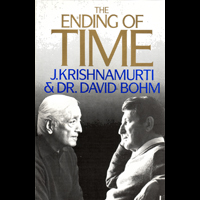
Krishnamurti
to Himself
Harper & Row (1987)
Shortly before his death, Krishnamurti recorded his observations and thoughts early each morning. Beautiful poetic descriptions of nature are interspersed with concise insights into the functioning of the human psyche.
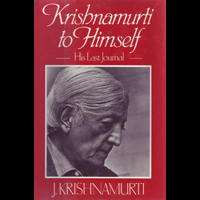
Total Freedom
Harper One (1996)
The book is a comprehensive collection of Krishnamurti’s most profound writings and talks. The selections, which are drawn from his early speeches to his last journal, offer insights into the nature of self and the mysteries of life and death.
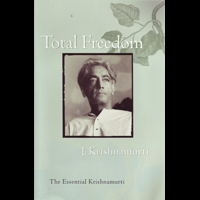
The Revolution
from Within
Hohm Press (2009)
Krishnamurti confronts the
conditioned, habitual mind which fails to see what is while it
absorbs itself in belief and illusion. A 3-hour DVD, “Public Talks
in Washington, D.C.,” accompanies the book.
